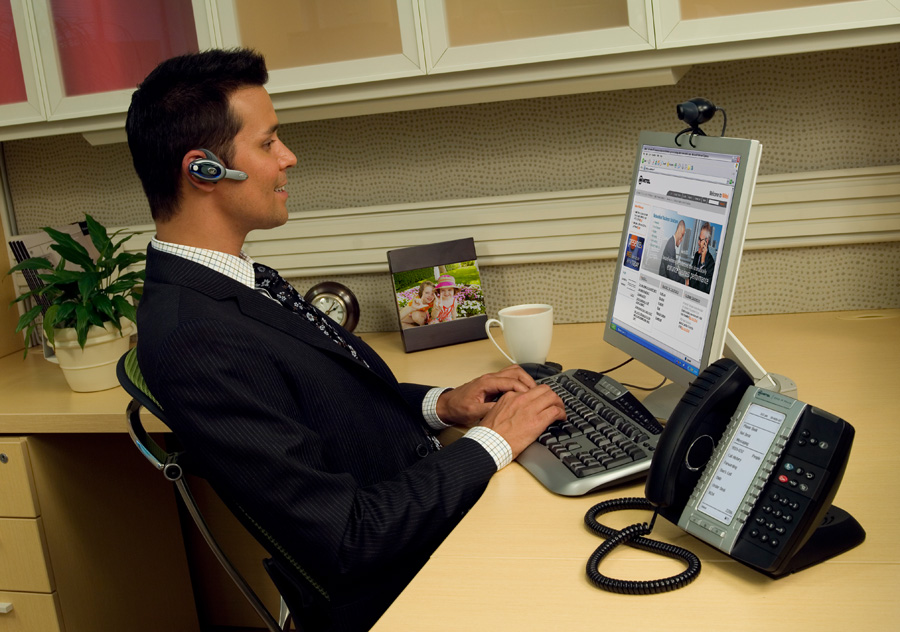
Dual Forking with Remote Call Control
Dual Forking with Remote Call Control
 Dual forking with remote call control (RCC) is targeted at users who want the combination of using their Communicator client with a Mitel desk phone when in the office or at home (using a Mitel Teleworker Solution phone) and using Communicator as a SIP softphone when travelling or away from their desk phone.
Dual forking with remote call control (RCC) is targeted at users who want the combination of using their Communicator client with a Mitel desk phone when in the office or at home (using a Mitel Teleworker Solution phone) and using Communicator as a SIP softphone when travelling or away from their desk phone.
When the user selects “computer mode” for softphone selection, the audio is handled by the computer’s audio devices (speaker/headset/microphone). When the user selects “phone mode” for integration with the Mitel desk phone, the audio is handled through Mitel 3300 IP Communications Platform (ICP) and the Mitel desk phone.
 When the user selects “computer mode” for softphone selection, the audio is handled by the computer’s audio devices (speaker/headset/microphone). When the user selects “phone mode” for integration with the Mitel desk phone, the audio is handled through Mitel 3300 IP Communications Platform (ICP) and the Mitel desk phone.
The reference to dual forking is due to the fact that a call presented to a user's desk phone is "forked" using the Mitel Unified Communicatorî (UC) Mobile technology to the user's Communicator softphone, in addition a call presented to a user's Communicator softphone is also "forked" by Microsoftî Office Communications Server (OCS) 2007 R2 so that the call is also presented to the user's Mitel IP phone.
When the user selects “computer mode” for softphone selection, the audio is handled by the computer’s audio devices (speaker/headset/microphone). When the user selects “phone mode” for integration with the Mitel desk phone, the audio is handled through Mitel 3300 IP Communications Platform (ICP) and the Mitel desk phone.
The reference to dual forking is due to the fact that a call presented to a user's desk phone is "forked" using the Mitel Unified Communicatorî (UC) Mobile technology to the user's Communicator softphone, in addition a call presented to a user's Communicator softphone is also "forked" by Microsoftî Office Communications Server (OCS) 2007 R2 so that the call is also presented to the user's Mitel IP phone.
When a call is received, the Communicator softphone and the Mitel ip desk phone will ring simultaneously. A single incoming call notification (also known as a "toast") will be presented to the user's PC showing the name and/or telephone number of the caller. When the user clicks “answer call”, the user’s preferred calling device will answer the call.
For information on product and application interoperability, please don't hesitate to contact us.

